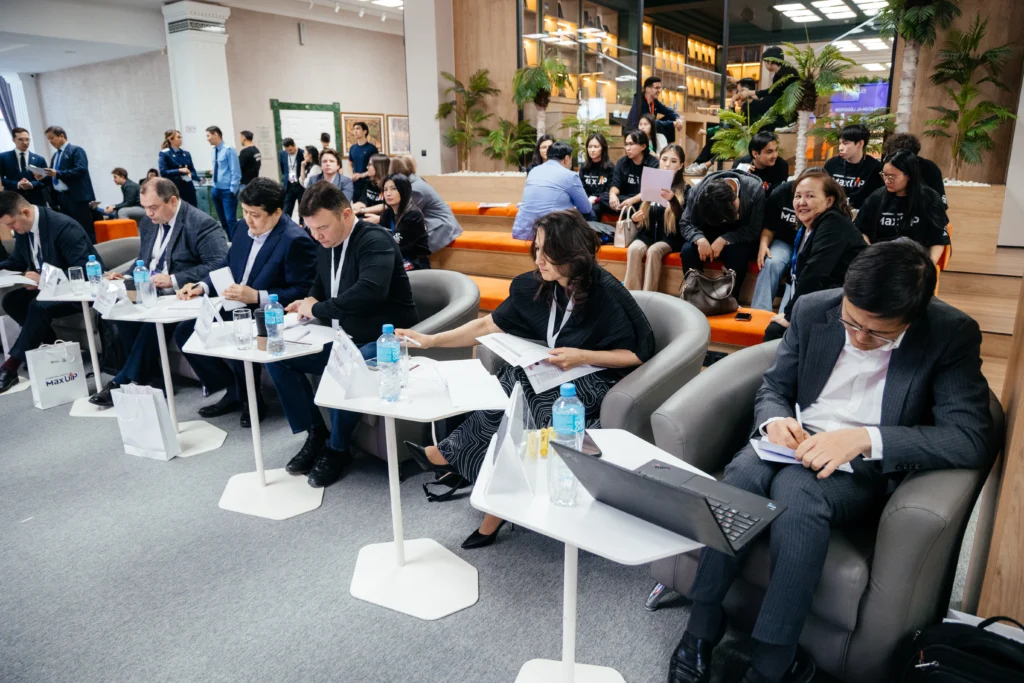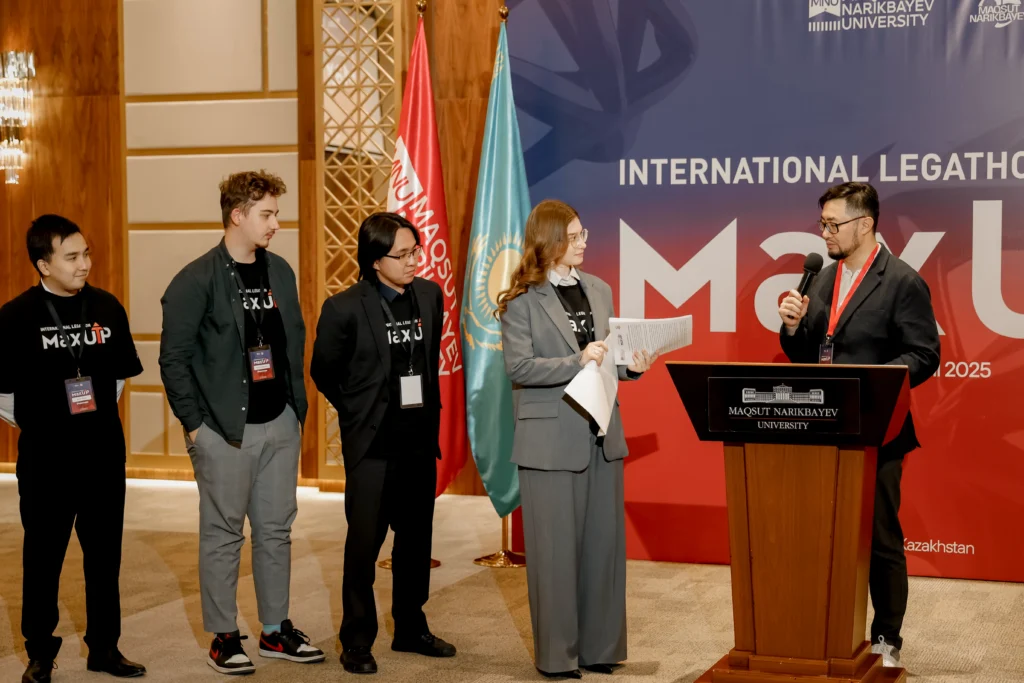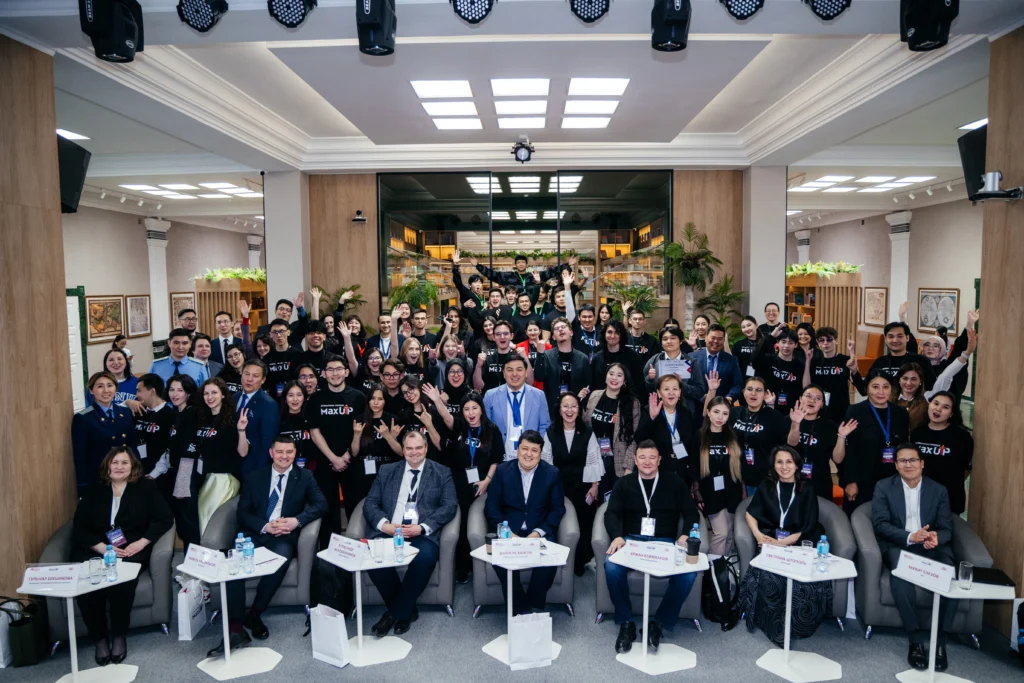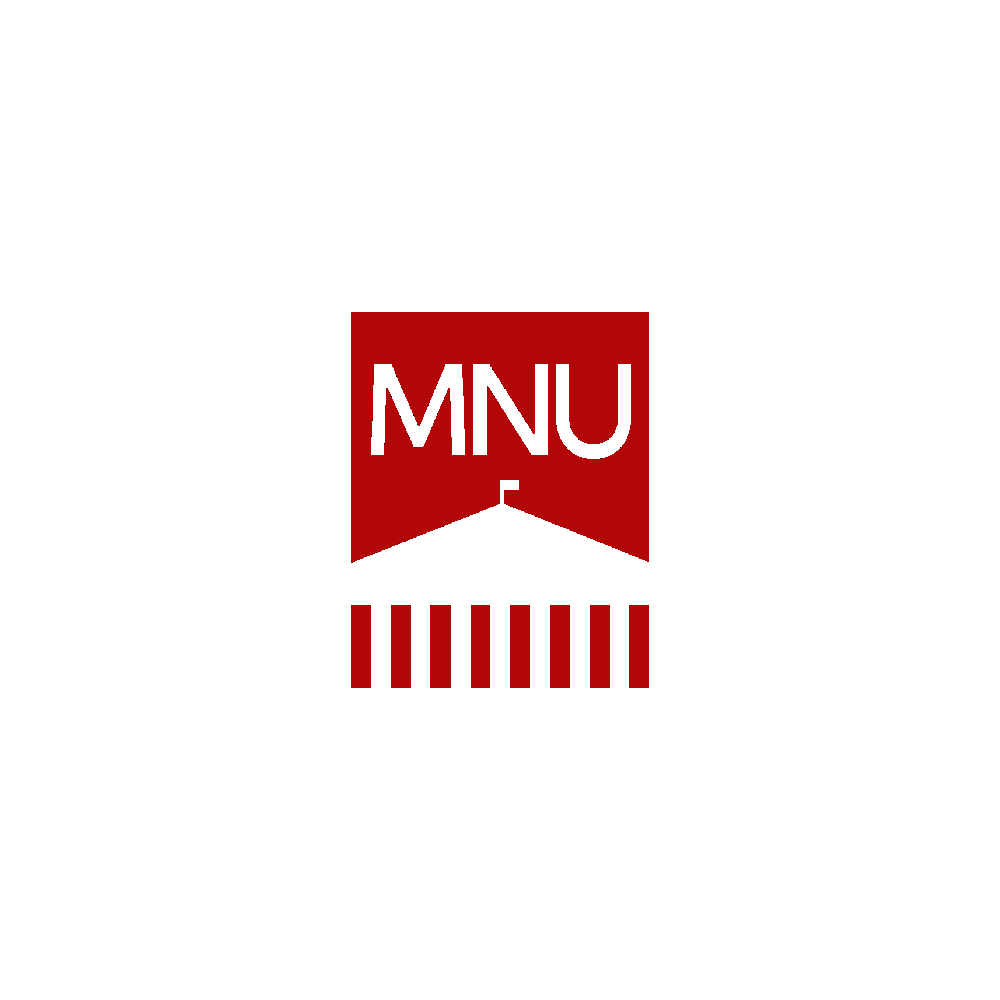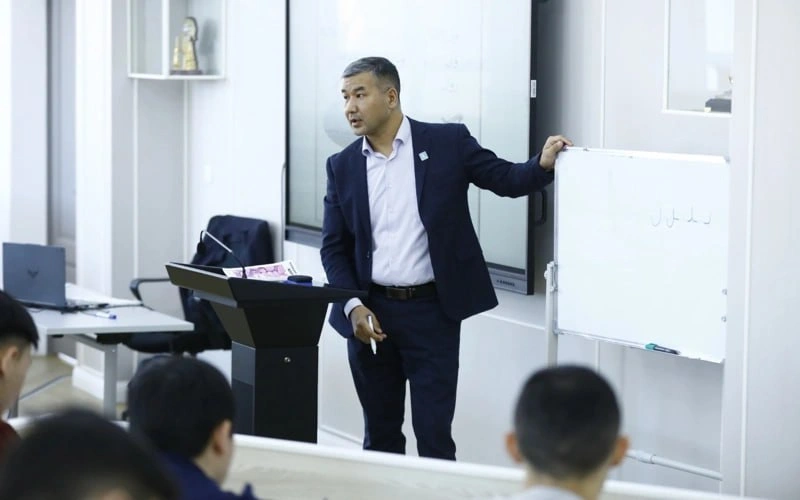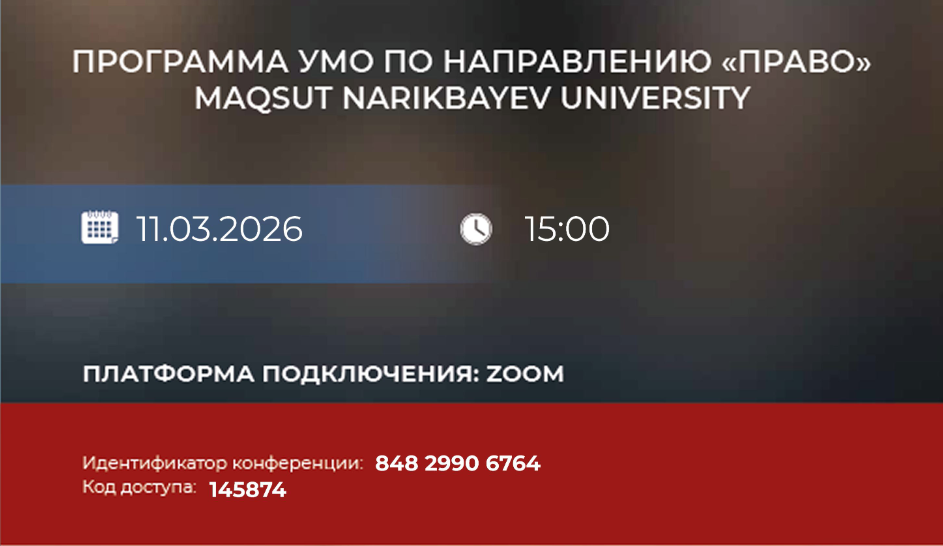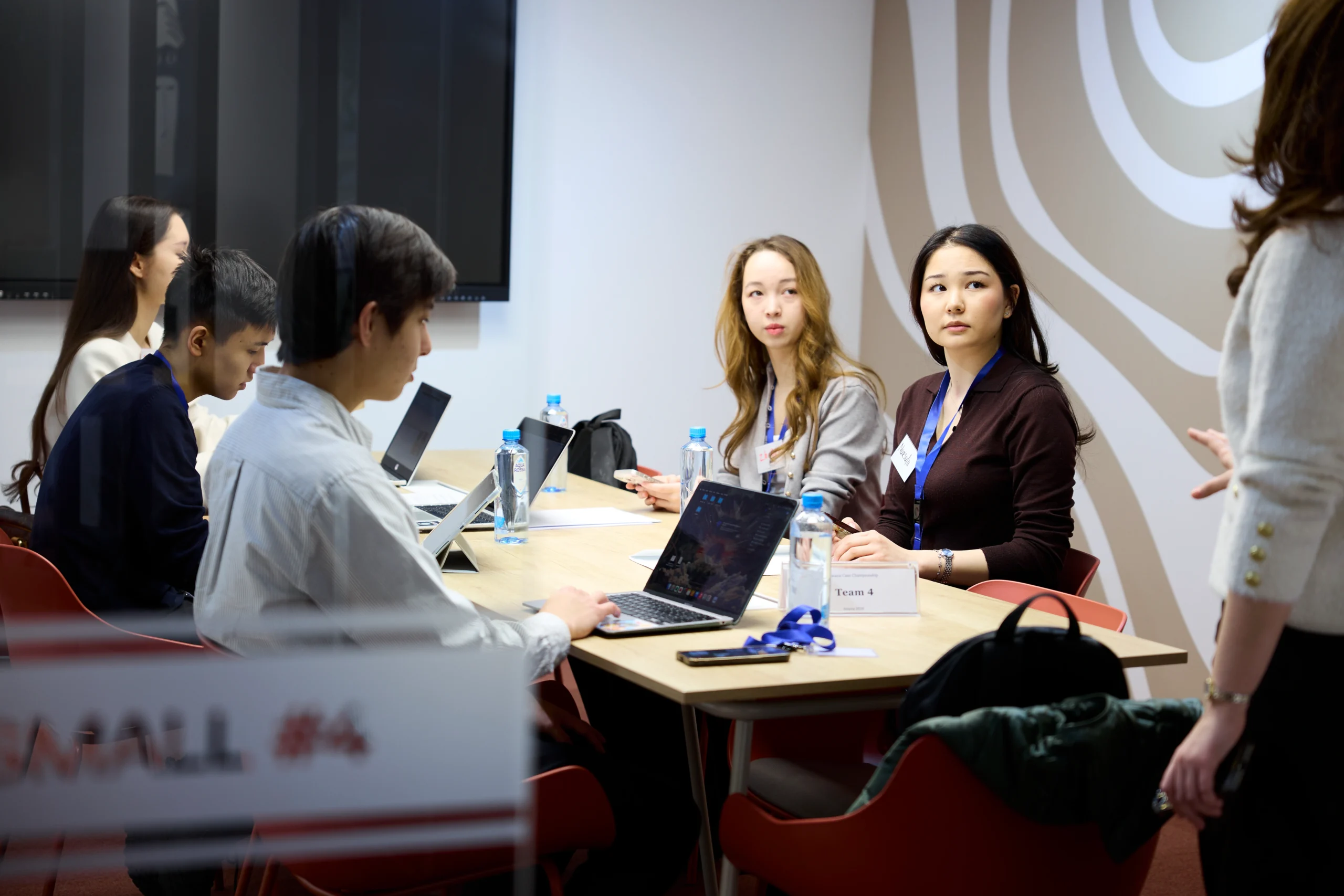On April 18–19, Maqsut Narikbayev University (MNU) proudly hosted the International Legathon Max UP 2025 — the first event of its kind in the CIS. This distinctive legal competition brought together students from Kazakhstan, Kyrgyzstan, Russia, and Uzbekistan, blending a high-level case championship with a forward-looking research forum. Participants explored the evolving landscape of law in the era of artificial intelligence (AI) and digital transformation.
The central theme of Legathon Max UP 2025 was “Ethics and Law in the Age of AI”. Nine student teams engaged with a complex scenario in which AI technologies posed serious implications for fundamental human rights and presented unprecedented legal dilemmas. Over the course of two days, teams analysed multifaceted cases, proposed regulatory frameworks, and defended research projects addressing critical issues in the realm of digital law.
President Kassym-Jomart Tokayev has previously underscored the need to enhance public competencies in the field of AI. Moreover, during his recent working visit to the Mangystau region, he reiterated that the development of high-tech and AI-related sectors is now of particular national significance. The Legathon’s timely focus on the legal challenges of AI attracted the interest of students from prominent universities, including Ala-Too International University (Bishkek, Kyrgyzstan), Ural State University of Economics (Yekaterinburg, Russia), HSE University (Moscow, Russia), TSUL (Tashkent, Uzbekistan), MNU (Astana), Yessenov University (Aktau), Al-Farabi Kazakh National University, AlmaU, and Kazakh Ablai Khan University of International Relations and World Languages (Almaty).
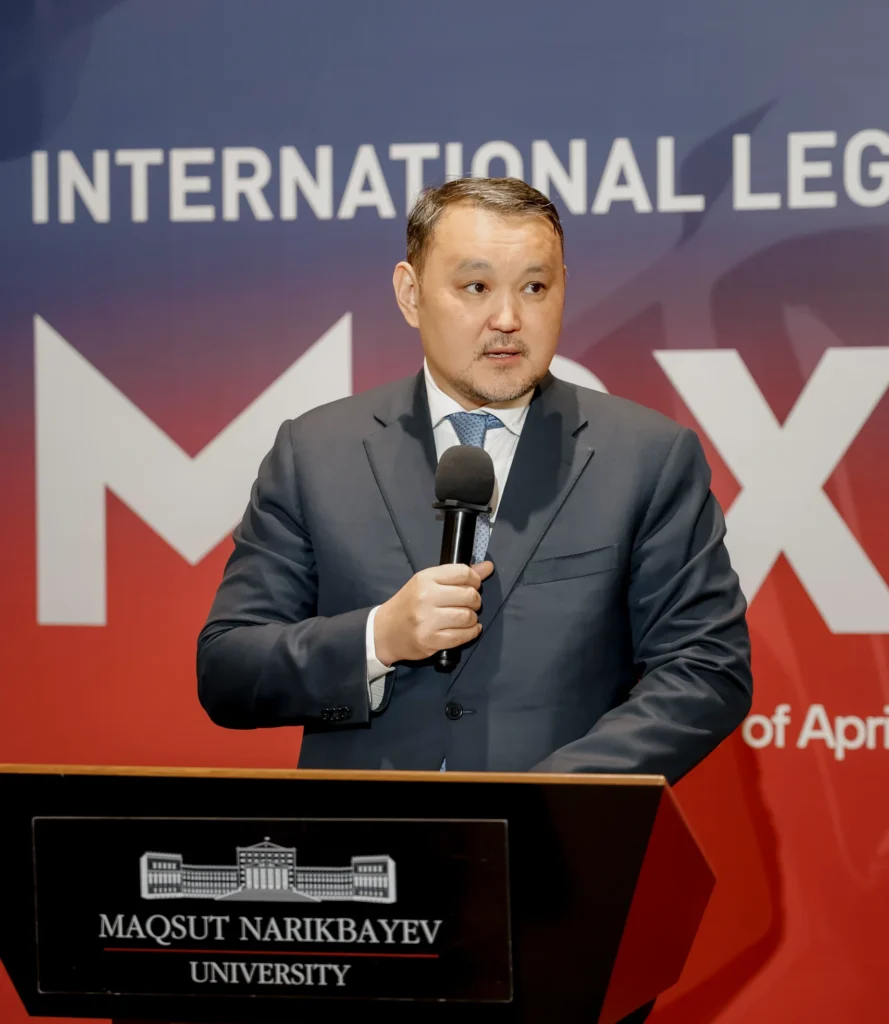
“It is particularly meaningful for us that the first Legathon coincides with the 85th anniversary of the birth of Maqsut Narikbayev, the esteemed honorary rector of our university — a man who dedicated his life to upholding the rule of law and justice. Our goal was to create an environment where students not only engage with the law but actively shape its future. Legathon addresses challenges that have yet to appear in textbooks but are rapidly approaching on the horizon,” said Talgat Narikbayev, Chairman of the Board of MNU.
The participating teams presented innovative solutions to legal dilemmas involving AI in the healthcare sector, as well as original research spanning diverse topics — from liability for autonomous AI systems and regulation of dual-use technologies to the mitigation of digital discrimination and the legal implications of digital personality replicas. Participants demonstrated creative thinking and legal knowledge, offering unconventional yet thoughtful approaches to emerging technological challenges. Their efforts were assessed by an esteemed panel of jurors, comprising representatives from the Prosecutor General’s Office, the Ministry of Justice, the Supreme Court, and partners from leading international and Kazakhstani law firms.
“Everything was organised at the highest level, down to the smallest details. Even the voting process was designed with integrity — team affiliations were revealed only after the announcement of the scores. Competitions like this offer students invaluable practical experience and insight. AI is undeniably one of today’s most pressing topics. We are already anticipating Legathon Max UP 2026 with great enthusiasm,” remarked Daniyel Vaissov, Vice Minister of Justice of the Republic of Kazakhstan.
Looking ahead, the Legathon is set to become an annual event. This year’s prize fund amounted to 1.7 million tenge. The championship title was claimed by the team from the Higher School of Economics (Moscow, Russia).
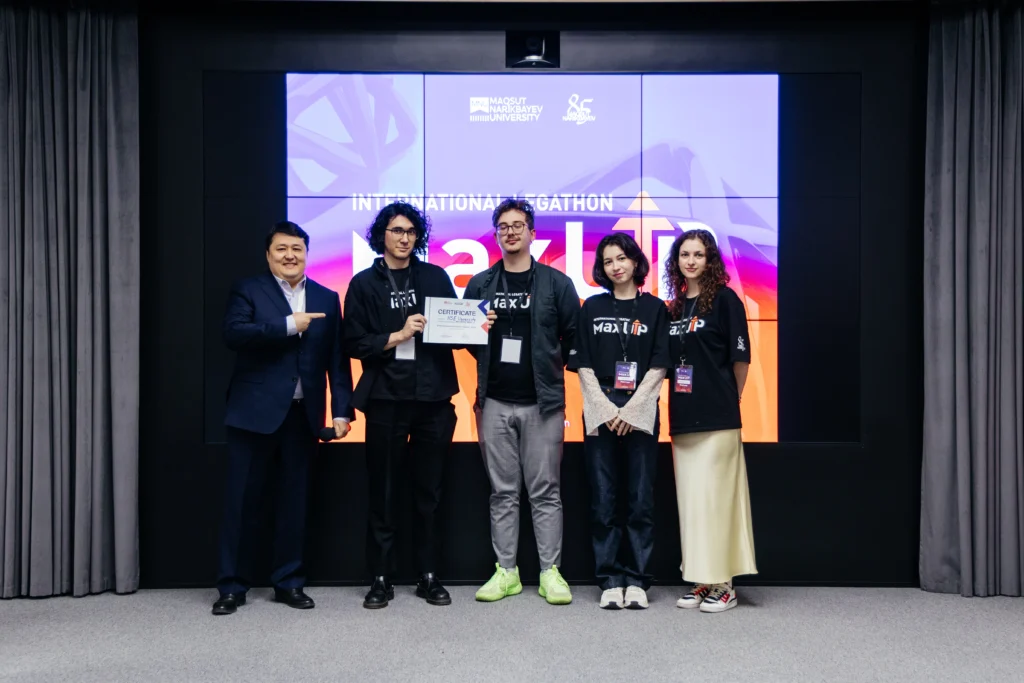
“The atmosphere was absolutely incredible, and the participants were very friendly. We are deeply honoured that our work received such recognition. It was truly an inspiring experience,” shared Tatiyana Zhmurina, a member of the winning team.
The first International Legathon Max UP 2025 marked a significant step in fostering dialogue between legal and technological spheres. It provided students with a platform to apply theoretical knowledge, showcase their expertise, and engage with both peers and seasoned professionals. MNU remains committed to advancing this initiative, with the goal of nurturing a new generation of legal professionals skilled at navigating the complexities of digital transformation.
